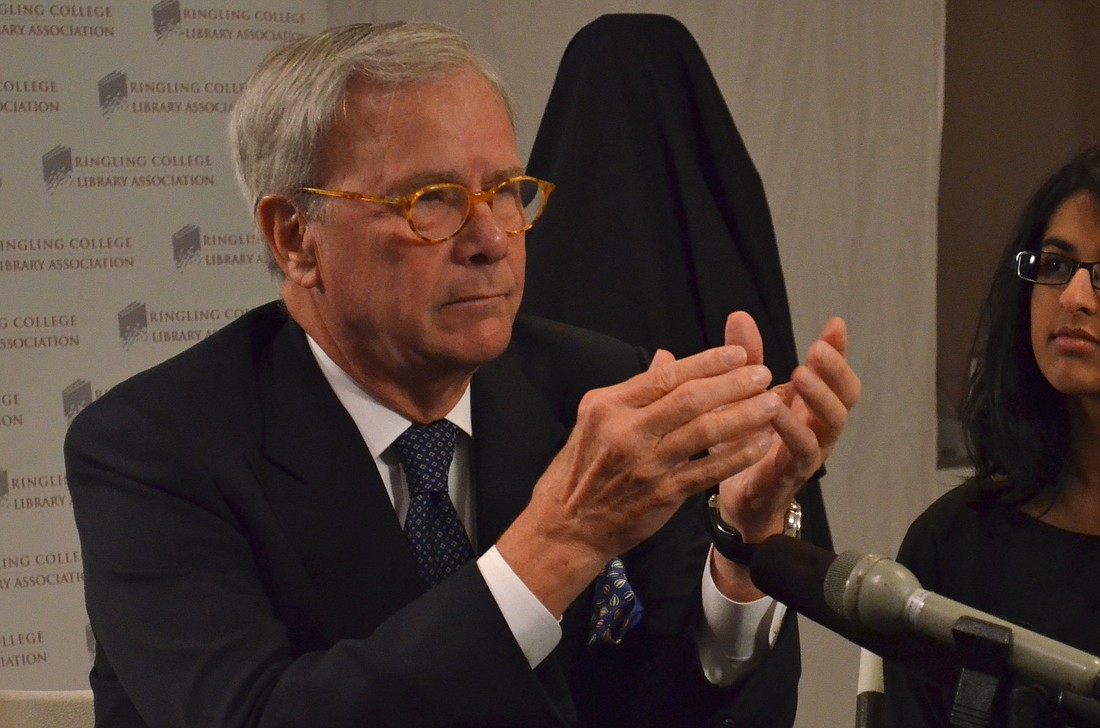- November 26, 2024
-
-
Loading

Loading

A table sits in a standing-room only meeting room in the basement of Van Wezel Performing Arts Hall with a small circular table full of hungry journalists anticipating the arrival of newscaster Tom Brokaw. Brokaw spoke as the final guest lecturer on Monday, April 8 in Sarasota as part of the 2013 Town Hall Lecture Series to benefit The Ringling College Library Association.
Where Brokaw has spent his career interviewing prominent world leaders ranging from the first interview with Mikhail Gorbachev to the Dali Lama and covering events from both Kennedy assassinations, to the fall of the Berlin wall for networks like "NBC Nightly News" and the "Today" show — this table of journalists has spent their careers hoping to interview the likes of Tom Brokaw.
Although he could have talked about his 1998 nonfiction book “The Greatest Generation” or the two-hour prime time documentary he’s making for the 50th anniversary of the assassination of John F. Kennedy, journalists asked him about what’s only natural for those sharing the same profession — the future of all of their careers. Is journalism really dying?
Brokaw believes broadcast journalism will always be in place, but he thinks the landscape has changed quite a bit. For one, there’s more than a couple of networks like there were in his day.
Another change Brokaw sees in journalism’s landscape is access to a wider range of information and outlets.
But with a wider access, “It means that we can no longer be couch potatoes,” he says. “We have to work a lot harder at it.” To be adequately informed, Brokaw suggests one must develop a checklist of credible sources of news that’s useful. People need to be aggressive about their approach to news seeking, much like they would be in their approach to buying a new flat screen T.V., suggesting it takes a variety of credible sources.
He has some advice for journalists: When you go on the air or when you go into print, most of the people who are reading or watching will already know what happened so you have to tell them what it means and what the added value is.
And the face of journalism has also changed. In Brokaw’s early years, an event similar to the press round table he was being interviewed at would have contained no women — seven women were present among nine reporters in attendance.
“It would have been all white males and two cameras,” he says.
As far as print journalism is concerned, Brokaw believes it will be reformed in a different way, and that we’re already seeing it played out through new technology and pay-to-play journalism.
“It’s tough to sell news weeklies,” he says. He suggests that his generation still likes to feel the newsprint, but that it’s going to go away and he doesn’t know what’s next.
But he does have some optimism for journalists everywhere: “There will always be a place for journalism because it is the oxygen of society,” he says. “People want to know what’s going on, they need the information to make decisions about their own lives and they’ll just be able to get it in an entirely different fashion.”